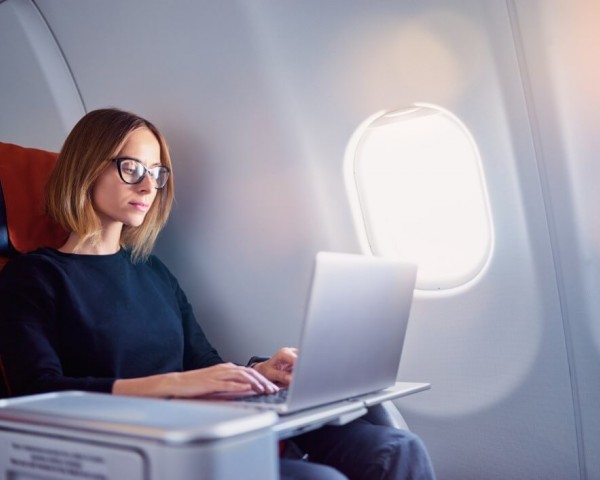A BCD Travel survey explored business travelers’ satisfaction with air travel, emphasizing their challenges, behavior, and overall satisfaction. Comfort emerged as a crucial factor throughout all stages of the travel journey. The findings are based on responses from over 1,300 business travelers in August 2024 who had flown in the past 12 months.
Comfort
The survey indicates that many travelers prioritize comfort. Almost half of the business travelers surveyed pay for seat selection and for checked and carry-on baggage if these are not included in the flight price. Other services travelers choose include priority boarding, extra legroom, and expedited security screening.
Regarding cancellations and exchanges, half of the travelers typically opt for fully or partially refundable tickets to maintain flexibility in case of travel disruptions or changes to their plans. Meanwhile, four in ten surveyed still select the cheapest option available, regardless of the cancellation or exchange policies.
Influencing Factors
Fifty-one percent of business travelers surveyed agree that price is a significant factor when booking business flights. However, the most substantial influences are the departure and arrival times and flight duration, accounting for 71% of responses. Additionally, 49% of respondents mention their employer’s travel policy as an influencing factor.
Regarding the duration of trips and classes of service, most travelers fly for business trips lasting between two and six days, with only 3% flying for one-day trips.
On short-haul flights (under six hours), 88% of passengers choose economy class, while only 9% opt for premium economy and 3% for business class. In contrast, on long-haul flights, less than half of travelers fly in economy class, with only 20% in premium economy and 30% in business class.
Sustainability
Direct flights are the most commonly mentioned sustainability measure among travelers, with 66% supporting this choice. Approximately 30% of travelers connect multiple destinations in a single trip, utilize public transport to and from the airport, and bring their water bottles. These behaviors positively impact the environment by reducing emissions and waste. In contrast, very few travelers opt for flights with the lowest carbon emissions, with only 16% making an effort to fly less frequently. Additionally, two-thirds of travelers admit that they never or rarely consider environmental factors, especially when sustainable options come with higher costs.
Traveler Satisfaction
More than two-thirds of business travelers are very or somewhat satisfied with their company’s travel policy and preferred suppliers.
When booking flights, three out of ten travelers report having no issues. However, a similar number express dissatisfaction that additional services—such as seat selection or priority boarding—are not included in their travel policy or require employer approval. One-fifth identify user-unfriendly booking tools, low-service classes, or low-cost airlines as their biggest challenges. Additionally, one in six travelers feel that their well-being is not considered, particularly regarding night flights.
While flying, travelers are especially frustrated by delays and cancellations, inconvenient flight schedules, and uncomfortable seats. Only a tiny number express concerns about a lack of focus on sustainability or restrictions on accessibility.
Unpleasant Situations
Business travelers often encounter several unpleasant situations during their trips. Common issues include inadequate space for hand luggage in overhead compartments and technical problems with the aircraft. Other concerns involve flying in bad weather, commuting to work after a night flight, and driving after a long-haul flight. While some situations are unavoidable or beyond control, employers can enhance their employees’ travel experiences by appropriately adjusting their travel policies.












